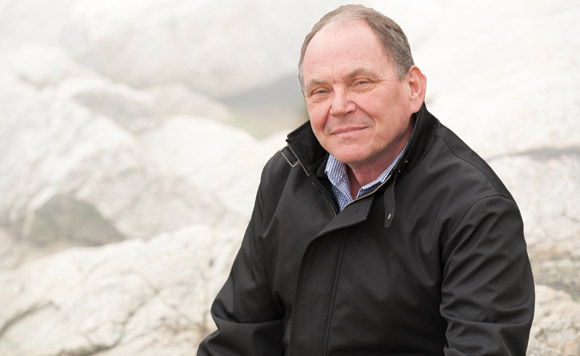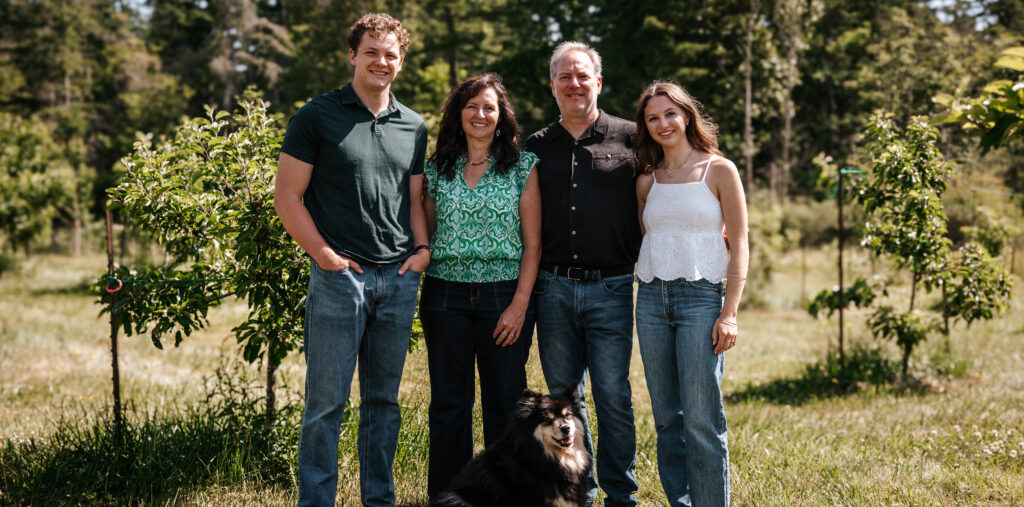Publisher Sue Hodgson talks with Environmental Scientist and ICC Group President and CEO Bryan Imber
Many countries rely on coal, oil and natural gas to supply most of their energy needs, but dependence on fossil fuels presents a big problem: they are a limited resource. Eventually, the world will run out of fossil fuels or it will become too expensive to recover those that remain. As well, they cause air, water and soil pollution, producing greenhouse gases that contribute to global warming. What was ICC Group’s first technology developed that allowed for the conversion of organic waste from food, yard and garden and wood into biomass energy?
In the mid 1990s we obtained a contract to compost yard and garden waste for Saanich. This was our first step into looking at waste and what the planet’s energy balance is doing. The more recourses are valued, the more space there is to develop innovative pragmatic reuse options. Our exposure to the world of organic waste led us to the design and development of composting technology able to handle municipal-sized organic wastes. Our first products were composts and fertilizers. We are now working on power from waste wood and liquid fuels (synthetic diesel and aviation fuel from waste organics.
On your website you are quoted “In 1995, I became aware of the waste management plan in Kathmandu: Wait until the monsoon season and push it into the river.” I’ve since researched the status in Nepal and conditions are frightening. It’s not even so much the lack of financial and technical resources to tackle the waste management problem but it’s the serious health and environmental hazard for all Nepalese. What can we learn as a province and a country from their critical situation?
Many countries have poor or nonexistent waste management policies; Peru puts waste on the beach and waits till morning. Other practises include dumping at sea from barges. As you say it can often lead to health issues. The pity of it is that a lot of resources are included in this so-called waste. As resources become more expensive then treatment is possible. If we could convert the carbon in waste to liquid fuel waste that could be 10% of the world’s liquid fuel source, and waste tips would become oil wells.
Municipalities are continually being challenged by their constituents and other levels of government to improve their environmental sustainability and reduce their carbon footprint. This is the same for commercial entities on the part of their customers in ensuring that their green initiatives are being met. This is proving to be even more challenging due to tightening budgets during the economic slowdown. With landfill capacity limited, and prohibitive costs to produce new ones, there is increasing pressure to find alternative disposal methods. What progress are the local governments making in this area and has there been much political resistance?
There are a number of forces at work that complicate what should be a simple issue. For most local governments, commercial landfill receipts represent a significant revenue stream. On the other hand, it is expensive to manage a modern-day landfill. Eight to 10% of the world’s Green House Gas (GHG) emissions are from landfills and even the best capped landfills lose about half of the methane they produce. Methane is 21 times more potent as a GHG than carbon dioxide. It is possible to redirect and reuse most of the material that currently goes to landfill. The US EPA has estimated that 97% could be diverted and reused. Certainly we should be reusing the carbon and other nutrients that we are currently wasting.
It’s fascinating the number of patents you’ve developed over the years, including anti-fouling paint; geochemical exploration for petroleum oils; and heat shock proteins for evaluating biological damage due to chronic exposure from sub-lethal levels of pollutants (basically a diagnostic process for cancer). What led you to develop your two waste management patents?
I think clean energy and the efficient use of our resources will be critical in the next decade. It is an area that has financial opportunity and that is important from an environmental point of view.
What is the benefit of converting waste to energy over other waste treatment options we might see from large corporations such as The Miller Group in Markham, Ontario?
The Miller group has been making compost from waste organics since 1990. Producing compost is certainly part of the picture in terms of reusing waste. Compost sequesters carbon in the soil and provides a great carbon footprint. Each tonne of compost reduces the carbon footprint by more than 1.4 tonnes if you allow for the landfill methane that will not be produced.
On the other hand, our liquid fuels research is suggesting that one tonne of organic waste can produce 100 gallons of fuel. This “clean fuel replaces fossil fuel and the organics are still kept out of the landfill, giving a GHG savings of 1.8 tonnes per tonne of organic waste.
After 12 years in development, what do you see as the ultimate goal for ICC Group?
In the next few years we are looking to roll out our 1MW waste wood to power facilities in the UK. Our partner is wanting to develop 10 facilities a year. These facilities we are expecting to be able to fund our research group so we can commercialise our waste-to-fuel technology.
Your career sees you making a difference every day. What do you think is the number one thing you do in your personal life that contributes to a happier planet?
For my working life I have tried to make a difference to our environment but the answer to your question is probably the effort my wife and I have put into our children. I think they contribute to a happier planet.
For more information visit www.iccgroup.ca.
Photo by www.nuttycake.com.




